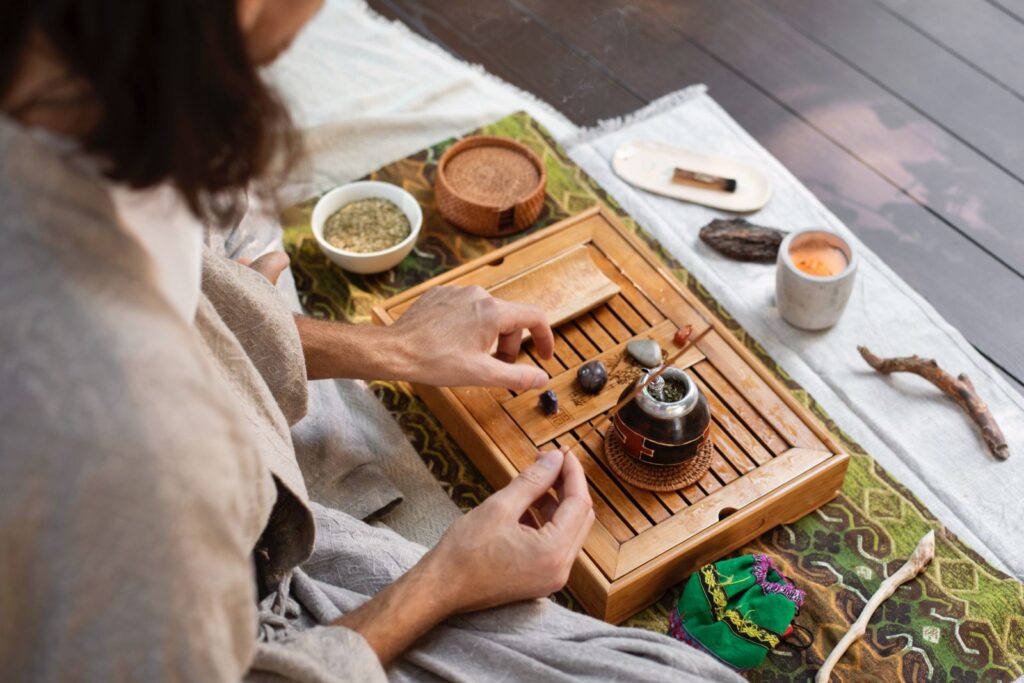
In our fast-paced world, where convenience often takes precedence over conscious living, the call for sustainable lifestyle practices has become more urgent than ever. One avenue that holds immense potential for promoting sustainability is the integration of herbs into our daily lives. Beyond their culinary and medicinal uses, herbs can play a crucial role in fostering a sustainable lifestyle that benefits both individuals and the planet.
Herbs have been cherished for centuries for their diverse applications, ranging from enhancing the flavor of our meals to offering holistic healing properties. As we strive to adopt more sustainable practices, it’s essential to recognize the multifaceted contributions of herbs in this endeavor.
Read more blogs on Lifestyle!
Culinary Riches
Herbs are nature’s flavor enhancers, offering a palette of tastes that can transform even the simplest meals. By incorporating herbs into our diets, we can reduce our reliance on processed flavorings and additives, promoting a more natural and wholesome approach to cooking. Cultivating herbs at home or sourcing them locally also helps cut down on the carbon footprint associated with the transportation of goods.
Health and Well-Being
Herbs have long been recognized for their medicinal properties, providing a sustainable alternative to synthetic pharmaceuticals. Harnessing the power of herbs for preventive healthcare can reduce the environmental impact associated with the production and disposal of pharmaceuticals. Additionally, cultivating an herb garden at home encourages a deeper connection with nature, contributing positively to mental well-being.
Biodiversity Boost
Growing a variety of herbs supports biodiversity by creating habitats for pollinators and beneficial insects. Unlike large-scale monoculture farming, which can deplete the soil and harm ecosystems, herb gardens can act as havens for diverse plant and insect species. This microcosm of biodiversity contributes to the overall health of the environment.
Sustainable Gardening Practices
Herb cultivation lends itself well to sustainable gardening practices. Herbs are generally low maintenance, requiring minimal water and fertilizer compared to some other crops. By opting for organic and eco-friendly gardening methods, such as composting and natural pest control, we can minimize our environmental impact and promote the health of the soil.
Herbal DIY
Engaging in herbal do-it-yourself (DIY) projects, such as making herbal teas, infusions, or homemade remedies, empowers individuals to take control of their well-being in a sustainable manner. This reduces the reliance on commercially produced products, which often come with excessive packaging and transportation costs.
Educational Value
Cultivating herbs provides an excellent educational opportunity for individuals, families, and communities. Learning about the lifecycle of herbs, their unique characteristics, and how to care for them fosters a deeper appreciation for the natural world. This knowledge can be passed down through generations, promoting a sustainable mindset within communities.
Conclusion
In conclusion, the role of herbs in a sustainable lifestyle extends far beyond their culinary and medicinal uses. Embracing herbs in our daily lives can contribute to environmental conservation, support biodiversity, and promote healthier, more conscious living. By integrating herbs into our diets, gardens, and healthcare routines, we can embark on a journey towards a more sustainable and harmonious relationship with the planet. As we cultivate a deeper connection with nature through herbs, we sow the seeds of a brighter, greener future for generations to come.
FAQ’s
How do herbs contribute to the environment?
Herbs play a vital role in pest control in the garden. Harnessing the potent properties of herbs like chives, catnip, mint, and borage can effectively ward off pests such as Japanese beetles, carrot flies, spider mites, and aphids, ensuring a more enjoyable and bountiful garden harvest.
Why do herbs play a crucial role in our lives?
Including herbs in our diet can contribute to the prevention and management of various health issues, such as heart disease, cancer, and diabetes. Additionally, herbs are known for their potential to reduce blood clots and exhibit anti-inflammatory and anti-tumor properties. Ongoing research supports the idea that certain herbs, including garlic, linseed, fenugreek, and lemongrass, may have cholesterol-lowering effects.
Read more about the sustainable use of medicinal plants






